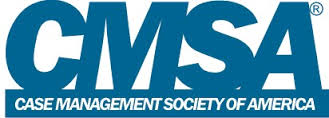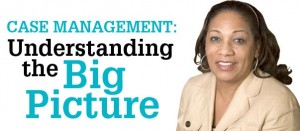Hospital discharge planners and case managers need to know more about private duty home care.
In order to be appropriate for home health or hospice services paid for by any payor, including the Medicare Program, patients must either be able to care for themselves or they must have a primary caregiver. Patients’ family members or others may be willing to fulfill this role on a voluntary basis. If not, discharge planners/case managers should offer patients and/or their family members the option to pay privately for a primary caregiver who can meet patients’ needs in between visits from professional staff from home health agencies and hospices. These types of services may be referred to by post-acute providers as private duty home care services.
The option to pay for private duty home care services should be offered to all patients who cannot care for themselves and who have no voluntary primary caregivers. Patients who can care for themselves or have voluntary primary caregivers may also wish to contract for additional assistance, so discharge planners/case managers should offer this option to all patients who may benefit from these services.
Discharge planners/case managers may be reluctant to offer these services to patients and their families because of the cost of such services. They may also erroneously conclude that patients and their families cannot afford these services. Discharge planners/case managers should not jump to conclusions about who can afford these services. Instead, private duty home care services should be offered to every patient and family who may benefit from them. This conclusion is consistent with legal and ethical requirements that govern the practice of case management.
From a legal point of view, discharge planners/case managers who work in hospitals must comply with Conditions of Participation (CoPs) that govern hospitals. Specifically, discharge planners/case managers are required to develop appropriate discharge plans, if necessary, for all patients. According to Interpretative Guidelines for the CoPs, development of appropriate discharge plans undoubtedly includes private duty home care services for patients who may benefit from them.
In addition, the Case Management Society of America (CMSA) has published national standards of care for case managers.  They are likely to apply to all case managers/ discharge planners, regardless of whether they are certified as case managers, because they are practicing as case managers.
They are likely to apply to all case managers/ discharge planners, regardless of whether they are certified as case managers, because they are practicing as case managers.
These standards make it clear that case managers have a duty to advocate on behalf of patients. As advocates for patients, discharge planners/case managers have an obligation to make sure that patients understand all of the options available to them, including the option to pay privately for home care services.
Case managers/discharge planners also have an ethical obligation to inform patients about the availability of private duty services. Autonomy is an important ethical principle applicable to the practice of case management/discharge planning. This ethical principle generally requires case managers to provide information to patients so that they can make informed choices.
Patients cannot make choices about the care they wish to receive unless they have information about all services available, including private duty services. Discharge planners/case managers, therefore, have a clear ethical obligation to provide information about private duty home care services to all patients who may benefit from them.
Patients are in the drivers’ seat when it comes to decisions about their care, but they cannot make appropriate choices unless they have information about all of the types of care available to them. Consequently, discharge planners/case managers have legal and ethical obligations to make sure that patients have information about private duty home care services.
(c) 2015 Elizabeth Hogue. Reprinted with Permission.
Elizabeth E. Hogue, Esq.
Office: (877) 871-4062
Fax: (877) 871-9739
Twitter: @HogueHomecare
ElizabethHogue@ElizabethHogue.net





